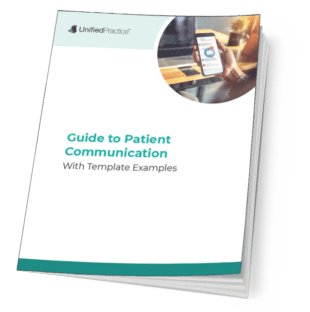A new FDA-approved multi-center study led by University of California San Diego School of Medicine and UCLA, in collaboration with the La Jolla Institute for Immunology, is spearheading the research to assess how effective Chinese herbal medicine and Chinese mushrooms can be in the treatment of acute COVID-19 infection. Traditional Chinese Medicine was shown to be beneficial in 2003 for the treatment of severe acute respiratory syndrome (SARS) and now has the potential to be the same for COVID-19 symptoms using TCM’s approach to diagnosis—pattern differentiation or differentiation of syndromes. Employing the gold standard of Western medicine, the randomized, double-blind, placebo-controlled clinical trial, the study will examine integrative approaches like MACH-19 (Mushrooms and Chinese Herbs for COVID-19) and their ability to treat COVID-19 and its varying symptomatology and presentations.
According to TCM theory, COVID-19’s trajectory can be divided into stages— the early stage (mild), middle stage (moderate), severe stage (critical), and recovery stage. Different Chinese herbs are indicated for each stage in each manifestation of a TCM syndrome or pattern. In the early stage of COVID-19, most patients have symptoms such as fever, cough, sore throat and chills which TCM considers a manifestation of heat, cold or dampness in the lungs. Ku Xing Ren (Semen Armeniacae Amarum, Bitter Apricot Kernel), Bai Dou Kou (Amomum kravanh, Cardamom) and Houpo (Magnolia Officinalis Cortex, Magnolia Bark) are the three most used Chinese herbs used at this point.
During the middle stage, most patients have in TCM what’s known as syndrome of “plague poison obstructing the lungs.” In this instance, Ku Xing Ren (Semen Armeniacae Amarum, Bitter Apricot Kernel), Shigao (Gypsum Fibrosum, Gypsum) and Tinglizi (Descurainia Semen, Tingli Seed) are the highest-frequency Chinese herbs used.
In the severe stage, the most common presenting symptoms were dyspnea and coma. At this point, a mechanical ventilator and an extracorporeal membrane oxygenation machine (ECMO) are often needed. Ren Shen (Ginseng Radix et Rhizoma, Ginseng), Fu Zi (Aconiti Lateralis Radix Praeparata, Aconite Accessory Root) and Shan Zhu Yu (Fructus Corni, Cornus) are the top Chinese herbs used during this phase. This particular combination of herbs is indicated for “weak heart yang with palpitations, shortness of breath, and chest pain.”
In the recovery stage, patients often have TCM disorders of Lung and Spleen Qi deficiency and Qi-yin deficiency. Fu Ling (Poria, China Root), Zhi Ban Xia (Pinelliae Rhizoma) and Chen Pi (Citri Reticulatae Pericarpium, Aged Tangerine Peel) are most frequently indicated.
Given the emergent nature and case frequency of COVID-19, a “general type” catch-all formula was developed to combine all stages into one. Qing Fei Pai Du Tang, or Lung Cleansing and Detoxifying Decoction, contains a combination of 21 individual herbs that support respiratory function and a normal body temperature. It’s a proprietary formula that ventilates the lungs, releases the exterior, clears heat and phlegm, and promotes water removal. Qing Fei Pai Du Tang is composed of four classic remedies described in the 2000-year-old manuscript, Shang Han Lun by Zhang Zhongjing. The four formulas are: Ma Xing Shi Gan Tang, She Gan Tang, Xiao Chai Hu Tang and Wu Ling San.
In February 2020, China’s General Office of the National Health and Health Commission recommended Qing Fei Pai Du Tang for the treatment of symptoms caused by the COVID-19 virus. “Chinese Herbal Formula for COVID-19,” the aforementioned study, which began in July 2021 and is projected to conclude in December 2022, evaluates the safety (adverse effects, if any) and the realistic usability of this formulation of 21 Chinese herbs from Taiwan (Qing Fei Pai Du Tang/QFPDT) that has already been widely used as a COVID-19 remedy in China with great success.
Similarly, the study for “Mushroom-Based Product for COVID-19,” which started December 2020 and is expected to conclude December 2022, tests the safety and feasibility of a 50/50 blend of the mushrooms agarikon (Fomitopsis officinalis) and turkey tail (Trametes versicolor) in capsule form (FoTv).
Four studies make up the MACH-19— all of which are double-blind, randomized, placebo-controlled clinical trials:
- Study 1: FDA-approved, Phase 1 trial of safety of polypore mushroom combination (FoTv) in treatment of mildly to moderately ill, self-quarantining COVID patients
- Study 2: FDA-approved, Phase 1 trial of safety of Chinese herbal formula (QFPDT) in treatment of mildly to moderately ill, self-quarantining COVID patients
- Study 3: IRB-approved trial of effects and safety of FoTv as initial COVID vaccine adjuvant looking at factors such as peak antibody response, rate of antibody decline over time, T-cell mediated immunity, vaccine side effects, and FoTv safety
- Study 4: Pending trial of effects and safety of FoTv as COVID booster vaccine also looking at peak antibody response, rate of antibody decline over time, T-cell mediated immunity, and vaccine side effects
The study is underway and began actively recruiting for 66-80 participants in July. Volunteers will take capsules of mushroom powder or Chinese herbal formula or a placebo three times a day for up to two weeks. Preliminary safety and any adverse effects data from these trials are expected by the end of this year, with efficacy data rolling out within a year. The intention of the study was three-fold: to become a resource for people to learn more about Chinese herbal medicine, to create a Chinese herbal medicine COVID clinic, and to protect our frontline healthcare workers. Additionally, a lingering need to “translate” Chinese herbal to a US audience was a motivating factor. Regardless of the outcome, the fact that this study is FDA-approved demonstrates an acceptance from Western science that has been a long time coming. MACH-19 represents an opportunity that is poised to provide more evidence and open the door to further support integrative medicine as a viable alternative. Other ideas that are growing in popularity and acceptance include the use of acupuncture to treat pain and treating malaria with the herbal extract artemisinin (wormwood).
Natural and alternative remedies have been used for centuries to treat infectious diseases. Chinese herbs helped Chinese doctors manage 300 recorded epidemics throughout history, while the Greek physician, pharmacologist and botanist Pedanius Dioscorides devised a 5-volume encyclopedia of herbal medicine years ago that included agarikon as well in the treatment of pulmonary ailments as long as 2300 years ago.
The FDA’s awareness and burgeoning acceptance of integrative, complementary medicine sets the precedent for that sentiment to translate to the broader population as a whole. It remains unknown as to whether or not COVID-19 will still pose a major public health threat by the time the results of the study are in but the results will certainly be relevant for the treatment of future viruses and the prescription of alternative medicine in general.
Andrew Shubov, Director of Inpatient Integrative Medicine, Center for East-West Medicine, at the University of California Los Angeles (UCLA), and a principal investigator in the study said, “Western medicine generally doesn’t need help treating infectious diseases until a pandemic like COVID hits. That’s when we realize we don’t have good answers to treating viral respiratory diseases. We hope our trials will open the eyes of the Western world to a rich pharmacopoeia of natural substances that we can draw from for many other diseases going forward.”




